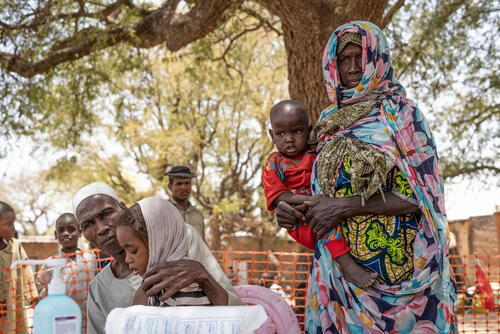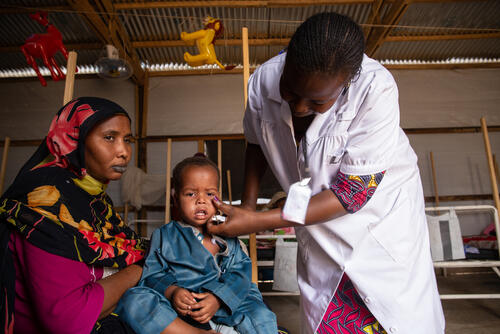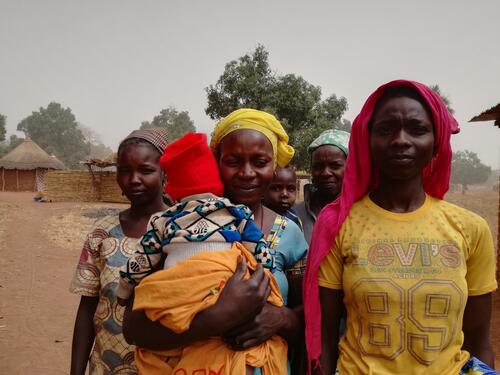Large swathes of Chad form part of the semi-arid Sahel region, and people in these areas are affected each year by a particularly harsh ‘lean season’ – the period between harvests from June to October – where food can be more difficult to come by. This time of year often sees peaks of malnutrition, malaria and other diseases that can lead to a critical situation for the most vulnerable people, especially for children under five.
The high levels of acute malnutrition during the lean season may be further compounded by additional shocks, like crop failures and price rises, which then also affect people in urban areas and in the capital. Our activities in the region focus on tackling this chronic emergency, along with recurring epidemics such as measles.
In July 2018 we set up an inpatient therapeutic feeding centre in Ndjamena, where children with severe acute malnutrition are admitted for treatment. The centre was turned into a measles unit, to admit severe cases during a particularly harsh outbreak, and is being used once again to treat malnutrition.
In Ndjamena we also provide preventive approaches and initiate earlier outpatient care for measles to avoid overwhelming inpatient facilities during the peak seasons.

Improving maternal and child healthcare
With a decrease in oil revenues, which represented a major source of income for the state, Chad has been mired in economic crisis since 2015. The crisis has led to budget cuts for the health and education sectors; unpaid wages for public staff, including nurses and doctors; and strikes.
The country is third-last on the human development index<p><a href="http://hdr.undp.org/en/content/latest-human-development-index-ranking">United Nations Development Programme</a> </p>: half of the population lives below the poverty line. Chad has one the world’s highest mortality rates for children under five (133 deaths for every 1,000 births) and maternal death (860 deaths for every 100,000).
In Moissala, in Mandoul region, we support integrated healthcare for women and children, with a focus on community engagement and participation. We provide staff for the maternity, paediatric, neonatal and surgical departments at Moissala hospital, and support paediatric, basic vaccination and basic obstetric care in two health centres. We also supply 21 health centres with drugs and equipment needed to diagnose and treat malaria.

Responding to violence and displacement
Insecurity and violence in and around Chad have led to displacement. This includes the militarisation of the northern area of Chad bordering Libya, where a Chadian rebel group launched a military offensive; sustained activities by an arm of the Islamic State group (Islamic State West Africa Province - ISWAP); and local groups affiliated with ISWAP in the area of Lake Chad; and escalating communal conflicts in the east, along the border with Sudan.
Chad hosts the second largest number of refugees, compared to the size of its population, in Africa. The country hosts around 300,000 Sudanese in the east; 70,000 Central Africans in the south; and 8,000 Nigerians, in addition to internally displaced people, in the Lake region.
MSF has been working in refugee camps in Chad, on the border with Sudan, since 2003, where we provide medical assistance.



